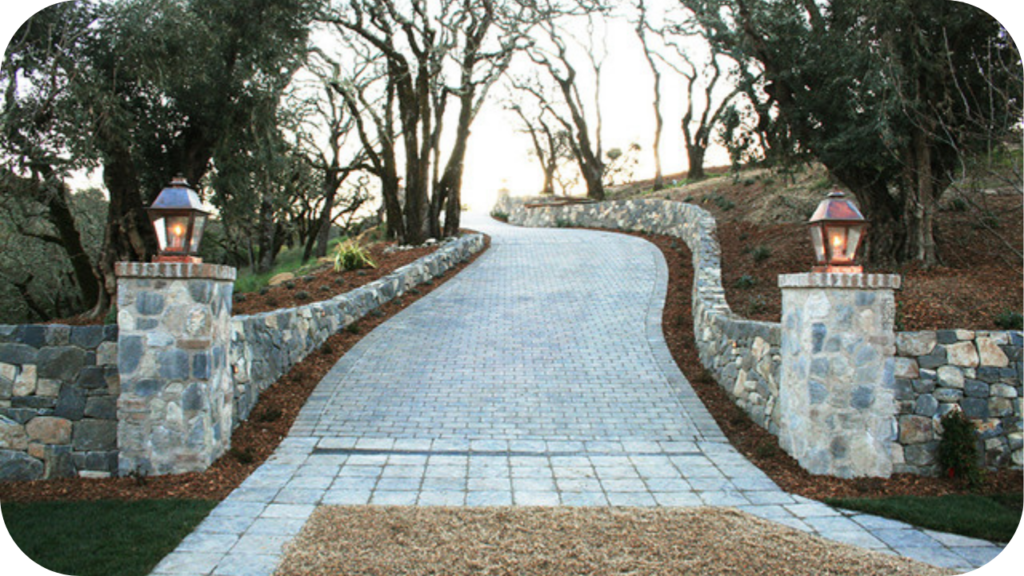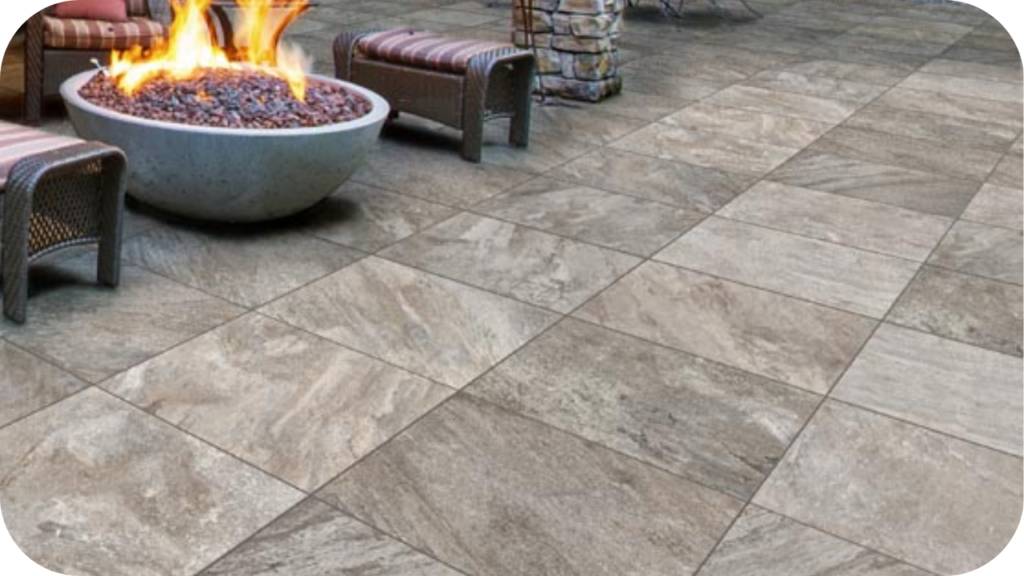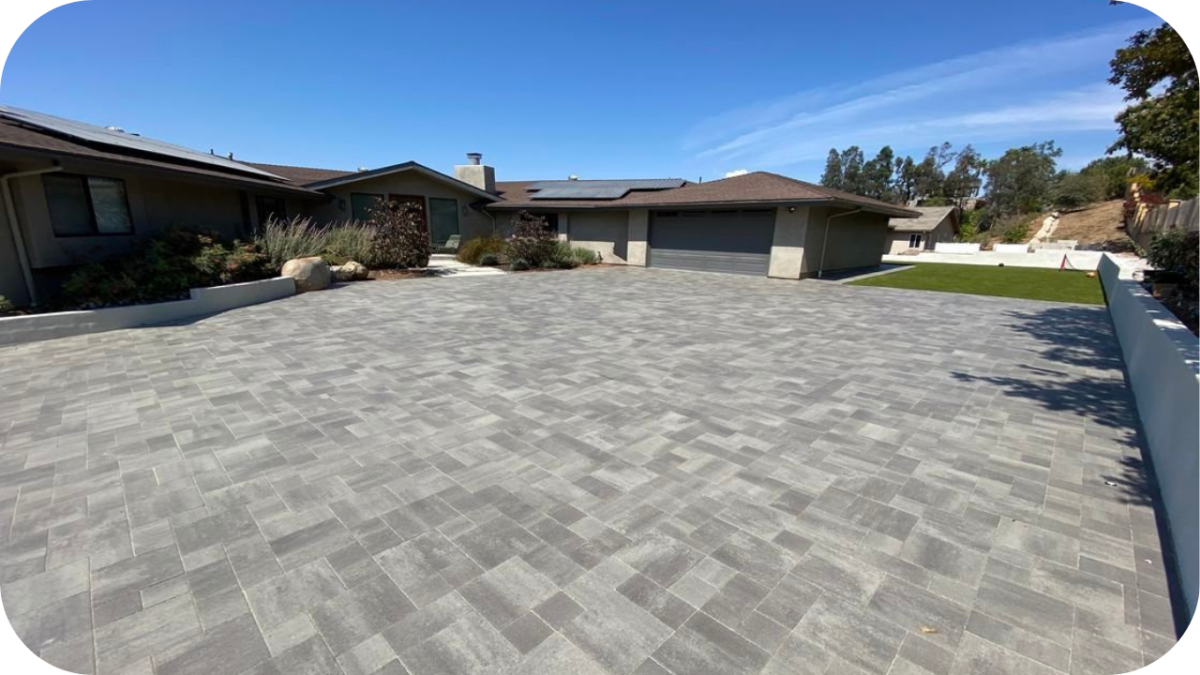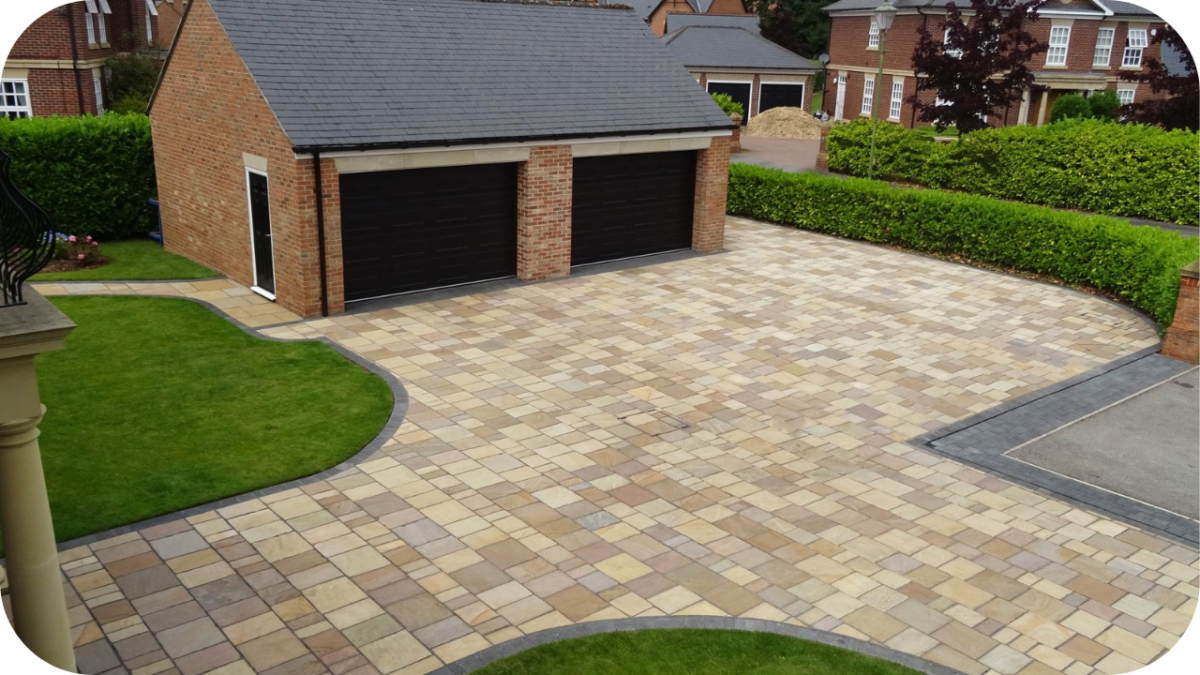Stone Paving Solutions for Coastal Homes
Living by the coast is a dream, until your paving starts crumbling from salt, moisture, and heat. Coastal homes cop a battering. Salt air corrodes. Sand wears things down. And cheap pavers just can’t handle it. One wrong choice and you’re up for repairs in just a few years!
That’s why smart homeowners choose natural stone. It’s tough, weather-resistant, and looks stunning all year round. This guide will walk you through the best stone paving options, design tips, and expert advice tailored for coastal living.
Coastal Climate Challenges for Outdoor Paving
Living near the coast is stunning, but the environment is tough on outdoor surfaces. Here’s what can quickly damage the wrong materials.
- Salt Exposure: Salt carried by sea air and ocean spray can erode the surface of porous materials. Over time, it weakens the paving and causes flaking. Choosing a salt-resistant stone is crucial for long-term durability.
- Moisture and Humidity: Coastal regions experience high humidity and regular moisture from mist or rain, which creates the perfect environment for mould and algae. Non-slip surfaces and proper drainage are vital to keeping the area safe and clean.
- Intense UV Radiation: Australian coastal areas get a lot of sun, which can fade and weaken certain materials. Some stones discolour or become brittle under constant UV exposure. UV-resistant finishes help maintain appearance and strength.
- Wind-Borne Sand and Debris: Strong coastal winds often carry fine sand that can scratch surfaces over time. It also settles into joints and causes wear. Harder, dense stones are better suited to resist abrasion in windy environments.
- Temperature Swings: Coastal zones can shift from cool, breezy mornings to hot afternoons. These rapid changes cause paving materials to expand and contract. Flexible jointing and proper installation help prevent cracking and movement.
Key Features to Look For in Coastal Stone Paving

Not all stone is cut out for beachside life. Here’s what to look for to ensure your paving stays strong and stunning.
- Salt Resistance: Coastal paving must withstand airborne salt and salty splashes. Stones with low porosity are less likely to absorb moisture and decay. A properly sealed, salt-resistant surface will last significantly longer in seaside settings.
- Non-Slip Texture: Pool splashes, sea spray, and morning dew make surfaces around coastal homes slippery. A textured finish, like tumbled or exfoliated sandstone, improves grip. Prioritising safety is key, especially for families and barefoot areas.
- UV Fade Resistance: Strong sunlight can bleach out colour and wear down soft surfaces. Stones like granite and quartzite retain their tones even under harsh sun. UV resistance means your paving looks fresher for years to come.
- Dense and Durable Composition: Harder stones resist chipping, scratching and daily wear from foot traffic or wind-blown sand. Dense materials also hold up better against erosion. Pick a stone that’s built tough from the inside out for long-lasting value.
- Low Maintenance Requirements: You should enjoy the view, not constantly scrubbing your paving. Choose stones that are easy to clean and require minimal sealing. The less fuss, the better for coastal living.
- Natural Coastal Aesthetic: Look for colours and textures that match the surroundings, such as soft greys, creams, and sandy hues. Natural tones blend beautifully with timber, water, and vegetation. A cohesive look enhances your home’s beachside charm.
Best Natural Stone Pavers for Coastal Homes

Not all stones are made for salt, sand and sea spray. These options bring durability and coastal charm to your outdoor spaces.
1. Granite
Granite is one of the toughest choices for coastal paving. It easily resists salt, heat, and scratches. Its dense structure holds up against moisture and sand, making it perfect for high-traffic areas.
Granite’s textured finishes offer slip resistance, while its range of greys, blacks, and earthy tones suit both modern and traditional beachside homes. This stone is a top performer in harsh Aussie conditions.
2. Limestone
Limestone brings a soft, natural look to coastal homes. It’s cooler underfoot than many other stones and works well in entertaining spaces. While it needs sealing near saltwater, its textured surface helps prevent slipping.
Creamy tones beautifully complement light coastal architecture. Limestone is ideal for those who want a warm, relaxed aesthetic without sacrificing comfort and visual appeal around their pool or patio.
3. Porphyry
Porphyry is a naturally split stone that easily handles salt, moisture, and foot traffic. Its coarse surface delivers excellent grip even when wet.
With a mix of earthy colours like greys, purples and reds, it perfectly suits Mediterranean and heritage-style homes. It requires very little upkeep, making it ideal for coastal living. Porphyry brings durability and rustic charm together in one practical package.
4. Quartzite

Quartzite is known for its strength and shimmering surface, adding luxury to any space. It withstands UV rays, salt air, and abrasion from wind-blown sand.
Quartzite complements contemporary and coastal designs in silver, gold, and creamy tones. It requires minimal sealing and maintenance, making it a premium choice for homes that demand elegance and long-term resilience.
5. Sandstone
Sandstone’s warm, natural tones make it a coastal favourite. Tumbled or exfoliated finishes increase grip and comfort underfoot.
Sandstone does require sealing for salt protection, but its earthy look blends seamlessly with timber, water, and native plants. It suits relaxed beachside aesthetics and stays cool even under the summer sun. Sandstone is always a safe and stylish option for classic Australian coastal appeal.
Design Tips for Stone Paving in Coastal Environments
Smart paving design enhances your outdoor space while protecting it from the elements. Here’s how to make your coastal paving last.
- Choose Light-Coloured Stone to Reflect Heat: Lighter tones like cream, beige and soft grey help keep paved surfaces cool. They reflect harsh sunlight rather than absorbing it. This makes your outdoor areas more comfortable during hot Aussie summers.
- Use Textured Finishes for Better Grip: Tumbled, sawn or exfoliated finishes offer increased traction on wet surfaces. These textures improve safety without compromising aesthetics. They are ideal for areas near pools, decks or beachfront walkways.
- Blend Stone with Natural Surroundings: Pick stone colours and shapes that reflect the coastal landscape. This creates a seamless transition from home to nature. Matching with native plants or timber accents enhances the coastal vibe.
- Lay Pavers with Proper Drainage in Mind: Install paving with a slight slope to allow rainwater and sea spray to drain off easily. Proper drainage prevents pooling and protects against erosion. It also helps maintain the integrity of the stone.
- Combine Sizes and Patterns for Visual Interest: Mix large-format tiles with smaller inlays or lay pavers in French or ashlar patterns. This adds depth and texture to large areas. A varied layout also hides marks and wear better over time.
- Create a Flow Between Indoor and Outdoor Spaces: Use similar stone materials across patios, entryways, and pool surrounds. This gives a unified look that enhances flow. Consistency in paving materials can make your home feel more open and connected.
Maintenance Advice for Coastal Stone Areas

Coastal environments are beautiful but unforgiving. Salt air, strong winds, and constant moisture can wear down even the toughest stone if it is not adequately protected. Regular maintenance is the key to keeping your paving looking its best year-round.
Start by sealing your natural stone with a high-quality, salt-resistant sealer. This helps prevent moisture and salt from penetrating the surface and causing damage. Rinse your paving regularly with fresh water to remove salt build-up, especially after storms or long dry spells.
Ensure your paving has proper drainage to avoid water pooling, which can lead to staining or erosion over time. In high-traffic or shaded areas, apply a non-slip treatment to maintain safety without affecting the stone’s appearance.
It is also important to inspect joints and edges for signs of wear or movement. A little upkeep now saves big on repairs later. With the right care, your coastal paving will stay strong and stunning for decades.
Why Choose Splendour in Stone for Coastal Paving Projects
When it comes to coastal paving, Splendour in Stone is the name homeowners and professionals trust across Victoria. Our natural stone pavers are carefully selected for their strength, weather resistance, and lasting beauty.
Each piece is chosen to withstand salt air, harsh UV, wind, and moisture without compromising on style. We understand that coastal conditions demand more from your materials.
We offer a curated range of stones, such as granite, bluestone, and quartzite, that perform brilliantly in seaside settings. From slippery pool zones to sun-drenched patios, we provide practical solutions without sacrificing design.
Our team works closely with you or your builder to select the right stone, finish, and format for your project. With custom cutting options, expert advice, and reliable delivery, we make it easy to get it right the first time. Splendour in Stone combines quality craftsmanship with real-world coastal know-how to bring your vision to life.
Conclusion
Coastal living deserves paving that’s as tough as it is timeless. Natural stone handles salt, sun, and sand like a pro and elevates your outdoor space with elegance.
Whether building new or updating, the right paver makes all the difference. Let Splendour in Stone help you find the perfect coastal solution. Chat with our team today and bring lasting beauty to your seaside home.




